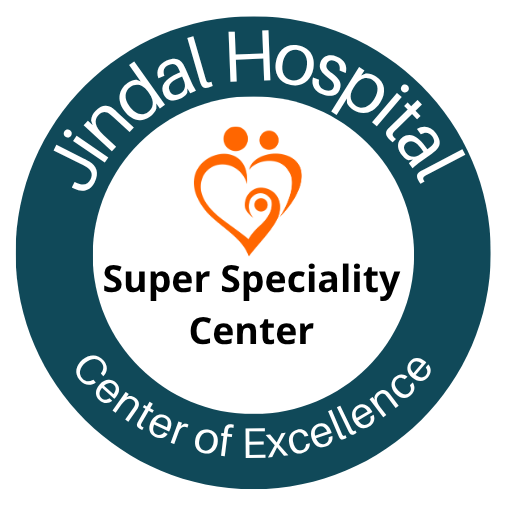Understanding PCOD and Effective Infertility Treatments
Introduction
Welcome to our comprehensive guide on Polycystic Ovary Syndrome (PCOS) and its impact on fertility. At Jindal Hospital & Fertility Centre, we understand the challenges individuals face when dealing with PCOS-related infertility. In this article, we delve deep into the causes, symptoms, and effective treatments for PCOS, aiming to provide you with the knowledge needed to navigate this condition with confidence.
What is PCOD?
Polycystic Ovary Disorder (PCOD), also known as Polycystic Ovary Syndrome (PCOS), is a hormonal disorder prevalent among women of reproductive age. It affects approximately 5-10% of women worldwide, making it one of the most common endocrine disorders among this demographic.
Symptoms of PCOD
- Irregular menstrual cycles
- Excessive hair growth (hirsutism)
- Acne and oily skin
- Weight gain or difficulty losing weight
- Insulin resistance
- Hair loss or thinning
- Mood swings and depression
Causes of PCOD
While the exact cause of PCOD remains unknown, several factors contribute to its development. These include:
- Genetics: A family history of PCOD increases the likelihood of developing the condition.
- Insulin Resistance: Elevated insulin levels can disrupt hormone production, leading to PCOD symptoms.
- Hormonal Imbalance: Fluctuations in androgen and estrogen levels play a significant role in PCOD.
- Lifestyle Factors: Sedentary lifestyles and poor dietary choices can exacerbate PCOD symptoms.
Effects of PCOD on Fertility
One of the most distressing aspects of PCOD for many individuals is its impact on fertility. The hormonal imbalances associated with PCOD can interfere with ovulation, making it challenging to conceive naturally. However, Jindal Hospital & Fertility Centre is here to guide you through the available treatments and options.
Treating PCOD-Related Infertility
Lifestyle Modifications
- Diet: Adopting a balanced diet rich in fruits, vegetables, whole grains, and lean proteins can help manage PCOD symptoms.
- Exercise: Regular physical activity can improve insulin sensitivity and promote hormone balance.
- Weight Management: Maintaining a healthy weight can reduce the severity of PCOD symptoms and enhance fertility.
Treatment Options for PCOD-Related Infertility
Assisted Reproductive Techniques, Medications, and Laparoscopy at Jindal Hospital & Fertility Centre
Polycystic Ovary Syndrome (PCOD) is a hormonal disorder that can impact a woman’s fertility. Many women with PCOD struggle to conceive due to irregular ovulation and other related factors. At Jindal Hospital & Fertility Centre, we offer a range of treatment options for PCOD-related infertility, tailored to each individual’s needs. Here’s an overview of the treatment options available:
1. Assisted Reproductive Techniques (ART)
Assisted Reproductive Techniques are advanced fertility treatments that can help women with PCOD achieve pregnancy. Some common ART options include:
- In Vitro Fertilization (IVF): Eggs are retrieved from the ovaries, fertilized with sperm in a lab, and the resulting embryos are transferred into the uterus.
- Intrauterine Insemination (IUI): Sperm is placed directly into the uterus around the time of ovulation to increase chances of fertilization.
- Intracytoplasmic Sperm Injection (ICSI): A single sperm is injected directly into an egg to facilitate fertilization, commonly used in IVF cycles.
- Frozen Embryo Transfer (FET): Embryos that were not used during a fresh IVF cycle can be frozen and transferred in a later cycle.
2. Medications
Medications help regulate ovulation and hormone levels in women with PCOD. Common medications include:
- Clomiphene Citrate: Stimulates the ovaries to release eggs and is commonly used to induce ovulation.
- Letrozole: Blocks estrogen production to trigger ovulation and is often prescribed as a first-line treatment.
- Gonadotropins: Injectable hormones that stimulate the ovaries to produce multiple eggs, often used with IVF.
3. Laparoscopic Surgery
Minimally invasive surgery may be recommended to correct physical issues that interfere with fertility. Common laparoscopic procedures include:
- Ovarian Drilling: Small punctures are made in the ovaries to reduce androgen production and restore ovulation.
- Fallopian Tube Surgery: Removal of blockages or adhesions in the fallopian tubes to improve fertility.
- Cyst Removal: Large ovarian cysts that impact fertility may be removed to restore reproductive function.
Why Choose Jindal Hospital & Fertility Centre?
At Jindal Hospital & Fertility Centre, we are committed to providing comprehensive and personalized care for women with PCOD-related infertility. Here’s why you should choose us for your fertility treatment needs:
- Expertise: Our team of fertility specialists, led by Dr. Sunil Jindal and Dr. Anshu Jindal, has extensive experience in diagnosing and treating PCOD-related infertility.
- State-of-the-Art Facilities: Our clinic is equipped with advanced technology and state-of-the-art facilities to provide the highest standard of care.
- Personalized Treatment Plans: We understand that every patient is unique, and we tailor our treatment plans to each individual’s specific needs and goals.
- Comprehensive Care: From initial consultation to post-treatment follow-up, we provide comprehensive care and support throughout your fertility journey.
- High Success Rates: We have a proven track record of success in helping women with PCOD achieve their dream of parenthood through various fertility treatments.
Conclusion
PCOD-related infertility can be a challenging and emotional journey, but there are effective treatment options available to help you achieve pregnancy. At Jindal Hospital & Fertility Centre, we offer a range of advanced fertility treatments, including Assisted Reproductive Techniques (ART), medications, and laparoscopic surgery — all tailored to your unique needs.
If you are struggling with PCOD-related infertility or have questions about your fertility treatment options, we encourage you to schedule a consultation with our team. We are here to support you every step of the way on your path to parenthood.
The Do’s and Don’ts of PCOD: Managing Symptoms and Improving Health
Polycystic Ovary Syndrome (PCOD) is a complex hormonal disorder that requires careful management and lifestyle adjustments. By adopting the right habits and avoiding certain practices, women with PCOD can better manage their symptoms and improve their overall health. Here are some important do’s and don’ts for those living with PCOD:
The Do’s of PCOD
- Maintain a Healthy Diet: Include plenty of fruits, vegetables, whole grains, and lean proteins in your diet.
Why: A balanced diet can help regulate blood sugar levels, manage weight, and improve overall health. - Exercise Regularly: Engage in regular physical activity such as walking, jogging, yoga, or swimming.
Why: Exercise can help improve insulin sensitivity, regulate hormones, and manage weight. - Manage Stress: Practice stress-reducing activities such as meditation, deep breathing exercises, or yoga.
Why: Stress can exacerbate PCOD symptoms, so managing stress is crucial for overall well-being. - Get Regular Check-ups: Schedule regular visits with your healthcare provider.
Why: Check-ups help monitor hormone levels, track symptoms, and adjust treatments as needed. - Educate Yourself: Take the time to learn about PCOD, its symptoms, and treatment options.
Why: Knowledge empowers better decision-making about your health. - Follow Medication Plans: Take medications as prescribed by your doctor.
Why: Hormonal or insulin-regulating medications can effectively manage PCOD. - Keep Track of Symptoms: Use a symptom journal to note changes or triggers.
Why: Helps identify patterns and improves treatment decisions.
The Don’ts of PCOD
- Avoid Sugary Foods and Drinks: Cut back on desserts and sweetened beverages.
Why: These cause blood sugar spikes and increase insulin resistance. - Limit Processed Foods: Avoid fast food and packaged snacks.
Why: Processed foods are high in unhealthy fats and sugars that aggravate PCOD. - Say No to Smoking: Quit smoking or using tobacco.
Why: Smoking disrupts hormone balance and increases inflammation. - Avoid Excessive Alcohol: Limit or eliminate alcohol intake.
Why: Alcohol can disrupt hormonal levels and affect fertility. - Don’t Skip Meals: Eat regular, balanced meals.
Why: Prevents insulin spikes and supports hormonal stability. - Limit Caffeine Intake: Cut down on coffee and energy drinks.
Why: Excess caffeine may interfere with hormone regulation. - Don’t Stress Too Much: Address stress with healthy coping mechanisms.
Why: Chronic stress can worsen PCOD symptoms and hormonal imbalance.
Conclusion
Living with PCOD requires a proactive approach to managing symptoms and improving overall health. By following these do’s and don’ts, women with PCOD can take control of their well-being and fertility. It’s important to work closely with your healthcare provider to develop a personalized treatment plan that meets your unique needs.
At Jindal Hospital & Fertility Centre, our expert team led by Dr. Sunil Jindal and Dr. Anshu Jindal is dedicated to providing compassionate care and effective solutions for women with PCOD. If you have concerns or are seeking treatment, we encourage you to schedule a consultation today.
Most Ask
FAQs About PCOD: Understanding Polycystic Ovary Syndrome
Common Symptoms of PCOD
- Irregular menstrual cycles: Menstrual periods that are infrequent, irregular, or prolonged.
- Excessive hair growth (hirsutism): Unwanted hair on the face, chest, or back due to elevated androgen levels.
- Acne: Persistent acne, especially on the face, chest, or upper back.
- Weight gain: Difficulty losing weight or unexplained weight gain.
- Hair thinning or loss: Hair loss from the scalp (female-pattern baldness).
- Skin darkening (acanthosis nigricans): Dark, velvety patches of skin, especially in the neck, armpits, or groin.
Treatment for PCOD
Treatment for PCOD aims to manage symptoms and improve hormonal balance. Depending on the individual’s needs and goals, treatment options may include:
- Lifestyle changes: Adopting a healthy diet and regular exercise routine to manage weight and improve insulin sensitivity.
- Medications: Hormonal treatments such as birth control pills to regulate menstrual cycles and medications like metformin to manage insulin resistance.
- Fertility treatments: Options such as ovulation induction with medications (e.g., Clomiphene, Letrozole) or assisted reproductive techniques like in vitro fertilization (IVF) for women trying to conceive.
Complications of Untreated PCOD
Untreated PCOD can lead to various complications over time, including:
- Infertility: Due to irregular ovulation or anovulation.
- Type 2 diabetes: Resulting from insulin resistance commonly associated with PCOD.
- High cholesterol: Increasing the risk of cardiovascular disease.
- Endometrial cancer: Prolonged lack of ovulation can lead to endometrial thickening and increase cancer risk.

